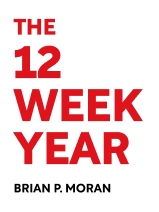

This article is an excerpt from the Shortform book guide to "The 12 Week Year" by Brian P. Moran. Shortform has the world's best summaries and analyses of books you should be reading.
Like this article? Sign up for a free trial here .
How do you develop self-accountability? What does it really take to assume ownership of your life and hold yourself accountable for its outcomes?
To cultivate self-accountability, you must release your beliefs that things in the external world have control over your life. External factors can’t shape positive results in your life—you are the only person able to create the life you want through your actions.
Here is how to encourage self-accountability and assume ownership of your life.
What Is Self-Accountability?
Self-accountability means understanding that you control your own fate. Life will happen to you whether you want it to or not. Tragedy strikes, you don’t get the results you want from your actions, people don’t respond the way you wanted, or you fail at something important. You can’t control these things, but you can control how you respond to them.
When you’re accountable, you don’t blame others for your lack of success. Society is full of examples of victimhood. We blame people, circumstances, our parents, the government, and corporate America for why we aren’t able to thrive in life. When you blame others for your lack of success or make excuses about why you can’t do more with your life, you limit your potential to only what others allow you to achieve.
Take a moment to think about all the reasons why you haven’t reached your goals before. What did you allow to derail your beliefs or efforts? What external forces did you blame for your inability to succeed? You’ve given away your power to forces out of your control for too long. Make the decision today to start owning your choices so nothing will ever stop you from achieving your full potential again.
The following are four ways to encourage self-accountability in your life:
1. Stop being a victim. Pay attention to when the little voice in your head starts to whine. Listen for excuses, and notice when you’re settling for less than what you know you can accomplish. When you experience these sensations, turn your focus to what you can control right now, and move toward those factors ready to act.
2. Don’t complain. When you start to complain about how unfair life is, you start to believe life is unfair. Your despair can turn into depression, wherein you believe the world is against you. Keep your thoughts positive to breed a positive attitude.
3. Change your behavior. You can’t continue to do the same thing and expect to get different results. If you want a different life, you have to lead a different life. Be willing to change your habits and behaviors so you can make the right choices that lead to new results.
4. Surround yourself with accountable people. The people in your life influence you more than you think. If you consistently interact with negative people who blame the world for their problems, their attitude will infect you. Find people who own their destinies, and model this ownership to the victims in your life.

———End of Preview———
Like what you just read? Read the rest of the world's best book summary and analysis of Brian P. Moran's "The 12 Week Year" at Shortform .
Here's what you'll find in our full The 12 Week Year summary :
- How to create a structured plan to rapidly accomplish goals
- Why annual goals don't work
- How to create urgency by working in 12-week increments






